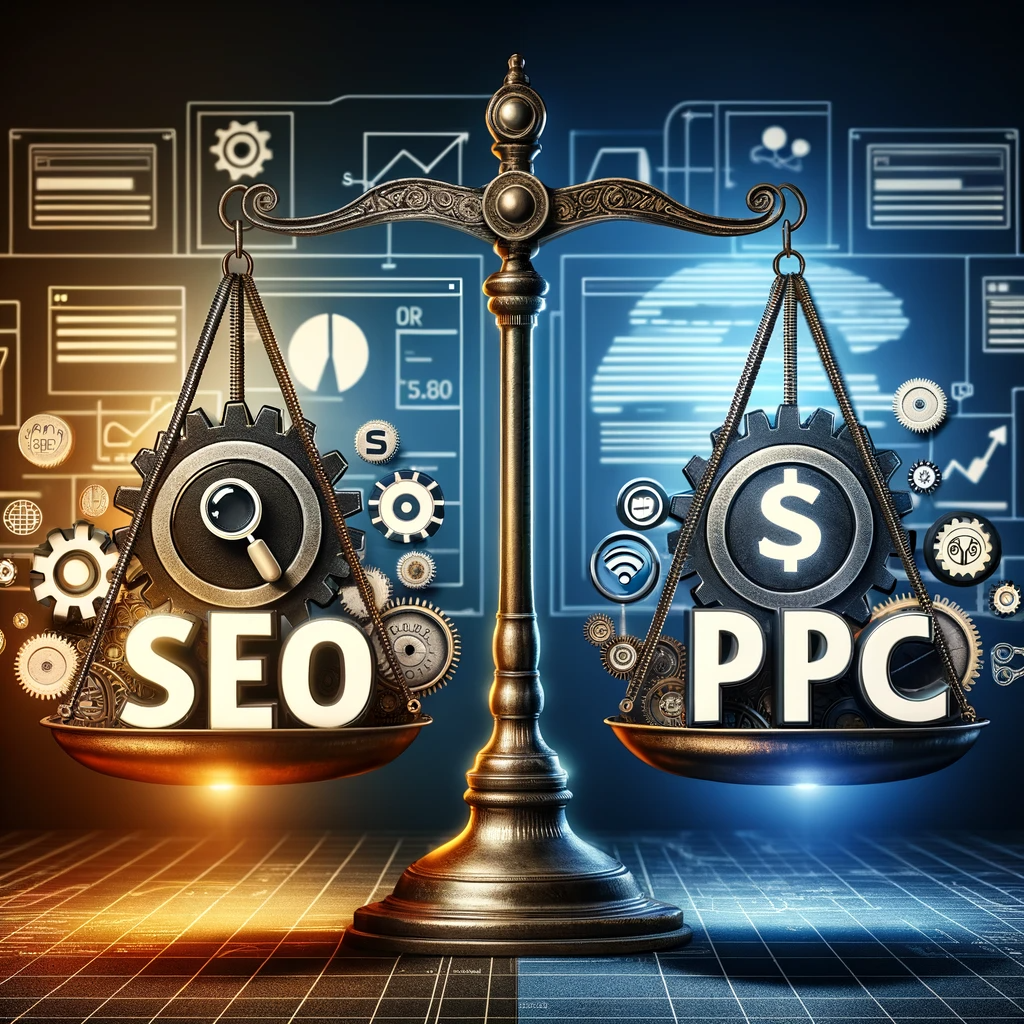SEO vs. PPC
3 Minute Read
An age-old question for digital marketers is how do you want to drive traffic to your website? This decision rests at the heart of your digital strategy and your pursuit of an optimal return on investment (ROI). Search engine optimization (SEO) and pay-per-click (PPC) provide influence on where and how you appear to users on search engine result pages. A strong strategy in PPC and SEO will increase your visibility on search engines, serve for relevant search queries, and attract the right audience to your site.
With SEO you are leaving a lot up to the search engine’s algorithm and how it ranks your content. You can influence it, but ultimately, these algorithms show results based on a multitude of complex factors. Thankfully, search engines have evolved past the days of keyword stuffing. Page relevance is no longer dependent on how many times you mention a keyword on a page. They have gotten smarter and recognize mentioning a term multiple times is not how people communicate.
Now search engines rank results based on the relevance of information on a website. Not only by where keywords appear on a page (i.e. page titles, headers, etc.) but also the use of associated keywords. And one page isn’t always enough; site hierarchy has an impact on page ranking. You build page strength by vertically connecting additional pages with similar content.
Mastering your website’s SEO can be good for brand awareness and gaining free and relevant traffic. But it’s a long-play approach involving significant levels of strategy and implementation focused primarily on content development. While SEO can be a powerful tool for connecting with an audience, it can be a slow process that rarely leads to instant results.
A quicker way to show up in search results is by creating a PPC ad campaign. Aside from the initial learning phase, your brand has the potential to show up on Page 1 much faster than with traditional SEO. Another key advantage is the predictability and timeliness of results. While this approach does still require a content strategy, its efficacy is less impacted by competition.
Without regular maintenance and monitoring, PPC can become a costly endeavor. Costs can increase past necessary means if you aren’t continually optimizing your campaigns. Google is constantly updating their ad platform with new features and settings that can impact your campaign performance.
So, now you are stuck with the question, should you focus on SEO or PPC? The simple answer is both. Should it be a 50/50 split? Well, that depends… That decision must be made relative to your specific brand, messaging, and goals. If timing is important, PPC can be a great way to start while you build your SEO approach, but to fully optimize your digital marketing, balancing the two is your best shot. Additionally, by working together, these two strategies can help reinforce each other and improve your overall results.
PPC and SEO can go hand in hand. Part of Google’s ad ranking system is based on the user’s landing page experience. If your PPC ad sends users to a landing page with irrelevant information, your ad score will suffer. But if you have a well-performing and optimized website for the desired keywords, it will likely support and strengthen your PPC campaign.
Without a strong PPC campaign, your optimized SEO website might not get the traffic it deserves. As we mentioned, it can take a while to reap the benefits of SEO, especially for brand-new sites. Which might be time you don’t have to waste depending on your product or service. You could have the perfect website based on SEO standards, but without a paid campaign to get the word out, your hard work might not pay off.
So, if you are aiming to achieve perfect harmony between the two, understand that the more optimized one is, the better the other will perform.
References Sunga, C. Seo Vs PPC advertising: Which is the better option? Digital Agency Network.

